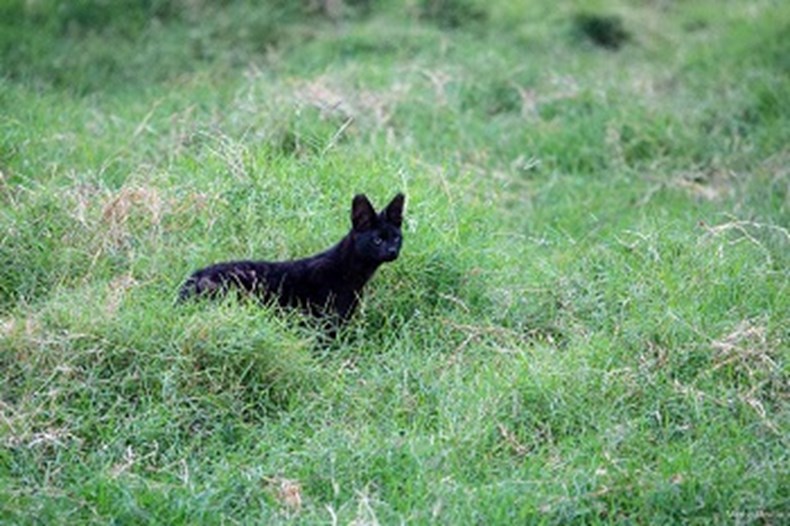Rare sighting of black or melanistic serval cat at Elewana Tortilis Amboseli

We are very excited to share this amazing sighting of a black melanistic serval cat spotted by our guide Juma Patrick in Amboseli. The photographs were captured by Marco Strullu, who was a guest at Elewana Tortilis Camp at the time.
Serval cats are similar in size to Caracals and are classed as medium sized cats, however they are more slender and taller with a weight that ranges from 9 to 13 kgs in adults. The coat pattern is variable but usually pale yellow with different sized spots, some of which merge into longitudinal stripes down the back and neck. The underparts are paler but usually also spotted and the tail has black rings with a black tip.
The word 'melanism' is deduced from a Greek word that means black pigment. Melanism is a recessive biological function present is a number of animals and birds, in which the dark-colored pigment melanin is developed in the fur, giving the animal a dark or black-colored appearance. For the melanistic characteristic to occur both parents must have the recessive gene but this does not mean that the offspring will be. There is only a 25% chance that they will have offspring that is melanistic.
The trait seems to be relatively rare in servals. There are just a few records of black servals in the scientific literature from Kenya, Tanzania, Ethiopia, Gabon, and the Central African Republic.
